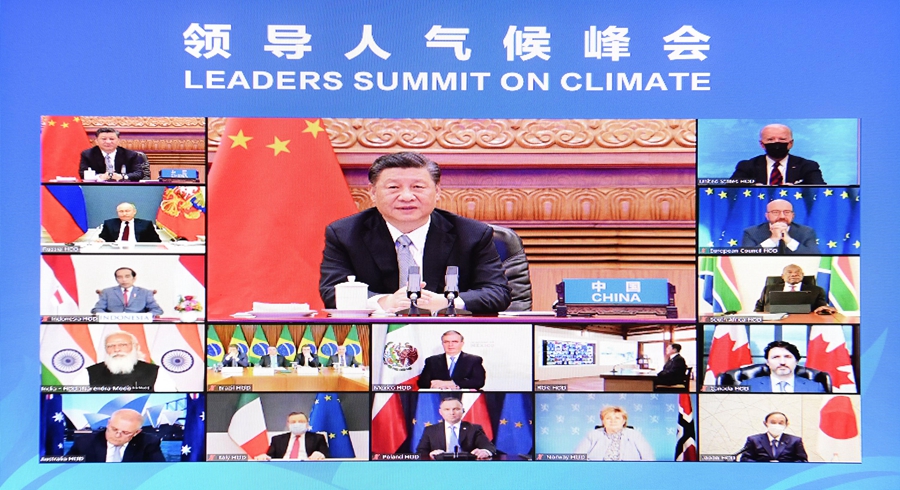
Ben Reynolds, Writer and Foreign Policy Analyst in New York
May 04, 2021
The U.S. and China, the two largest carbon emitters in the world, have both pledged to cut their greenhouse gasses with ambitious near-future targets, but neither side is ready to work together on the details.
Apr 27, 2021
Xi was the first national leader to speak after Biden, emphasizing the need to advance global environmental governance.

Tang Xinhua, Associate Researcher, Tsinghua University’s Institute of International Relations
Apr 23, 2021
U.S. President Joe Biden is making a run at renewing America’s global leadership on climate governance. The World Earth Day summit provided an inflection point that attracted attention from around the world.
Apr 22, 2021
Biden has invited dozens of world leaders to join the two-day virtual summit starting on Thursday.

Cao Jiahan, Researcher, Shanghai Institutes for International Studies
Apr 21, 2021
Four years ago, Donald Trump rashly withdrew the United States from the Paris Agreement. Under President Joe Biden it has returned, but it needs to do more. Kerry’s visit with his Chinese counterpart was a good start.
Karen Mancl, Professor Emerita of Food, Agricultural & Biological Engineering, The Ohio State University, and Fellow, Woodrow Wilson Center for International Scholars
Apr 17, 2021
Early in the pandemic, an unexpected outbreak among mink brought catastrophe to Denmark’s vaunted mink fur industry, leading to the extermination of its entire mink population and total collapse of its output. The U.S. and China are among the top contenders looking to capitalize on the sudden vacuum in the market.

Apr 14, 2021
Ma Shikun, Senior Journalist, the People’s Daily
Apr 06, 2021
China should be praised, not criticized, for reaching out to poor countries in Africa with lifesaving vaccines. The United States, with all its vast resources and the best vaccines in the world, should follow suit for humanitarian reasons.
Cao Jiahan, Researcher, Shanghai Institutes for International Studies
Mar 10, 2021
Infamous for his ignorance of climate science, Donald Trump began to dismantle Barack Obama’s climate legacy soon after he took office in 2017. The newly elected president, Joe Biden, wants to restore the teamwork, but it’s a politically tricky proposition.

Cheng Li, Director, John L. Thornton China Center, The Brookings Institution
Ryan McElveen, Associate Director, John L. Thornton China Center, Brookings Institution
Mar 02, 2021
The volatile state of U.S.-China relations has only hindered progress towards ending the COVID-19 pandemic. There’s little question that if the two countries were to join forces, a safer world would be within reach.
Back to Top

- China-US Focus builds trust and understanding between the U.S. and China through open dialogue among thought leaders.
- Our Offerings
- Topics
- Videos
- Podcasts
- Columnists
- Research Reports
- Focus Digest
- Stay Connected
-
Thanks for signing up!
- Get the latest stories from China-US Focus weekly.